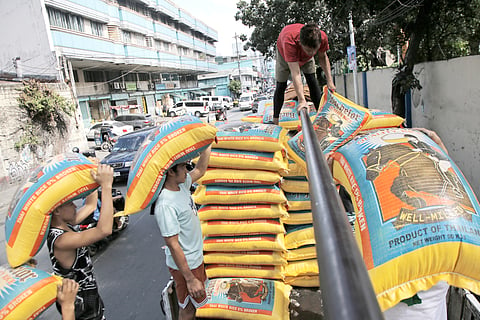
- NEWS
- the EDIT
- COMMENTARY
- BUSINESS
- LIFE
- SHOW
- ACTION
- GLOBAL GOALS
- SNAPS
- DYARYO TIRADA
- MORE

President Ferdinand Marcos Jr. has suspended rice imports for 60 days and delayed a planned tariff hike to protect farmers while stabilizing prices.
Agriculture Secretary Francisco P. Tiu Laurel Jr., in a statement Tuesday, described the action as "more calibrated," citing that it is one that can quickly be reversed if needed.
“It gives us the flexibility to act fast to protect both our farmers and our consumers. A premature tariff hike, on the other hand, could backfire and would take much longer to undo,” he added.
Starting September, Marcos will enforce the temporary import halt under the Rice Tariffication Law, which allows the chief executive to limit foreign rice purchases to stabilize domestic prices.
Reports show that in some areas, traders are buying palay at P8 per kilo—around two-thirds of the cost for the most efficient farmers to produce it.
While the Department of Agriculture had proposed raising the rice tariff from 15 percent to 25 percent and later to 35 percent, Marcos decided to defer the increase.
The tariff was cut from 35 percent to 15 percent in July last year to curb rising rice prices.
“We are walking a tightrope here. The stakes are high for both our farmers and the Filipino people, so it’s crucial that we strike the right balance,” Tiu Laurel said.
The DA will use the two-month freeze to assess its impact on palay prices and the broader market.
“If this strategy leads to higher farmgate prices and better income for our farmers, we may no longer need to raise the tariff,” Tiu Laurel said.
